A newly arrived preacher in a colonial town finds himself caught in the middle of a long-standing battle between two Māori tribes. A film by Lee Tamahori, starring Guy Pearce, Tioreore Ngatai-Melbourne, Antonio Te Maioha, Jacqueline McKenzie, and Lawrence Makoare.
The CONVERT
Lee Tamahori
(2024)
For over 500 years Māori fought with edged weapons. In the 1800s they acquired muskets and Christianity.

In 1830, Thomas Munro (Guy Pearce), a lay minister, travels across the Tasman Sea from Britain to New Zealand. After encountering a severe storm, the ship makes a stop at North Island, which is called Waikura by the suggestion of Uenuku (Ariki Salvation-Turner), son of a Māori chief who is on board to learn the ways of seacraft from Captain Kedgley (Dean O’Gorman). Their objective is to obtain timber and replace the damaged topgallant.

Munro encounters Rangimai (Tioreore Ngatai-Melbourne), an indigenous young woman, who is fascinated by his white horse. Suddenly, they are approached by Rangimai’s husband and his men, who seem agitated by Munro trespassing on their land. Before things escalate, Kedgley intervenes, as Munro struggles to communicate in Māori. Kedgley asks the chief of the tribe for wood to make repairs. The chief proposes trading Munro’s horse for the trees, but Kedgley offers them an axe instead, and they accept his offer.
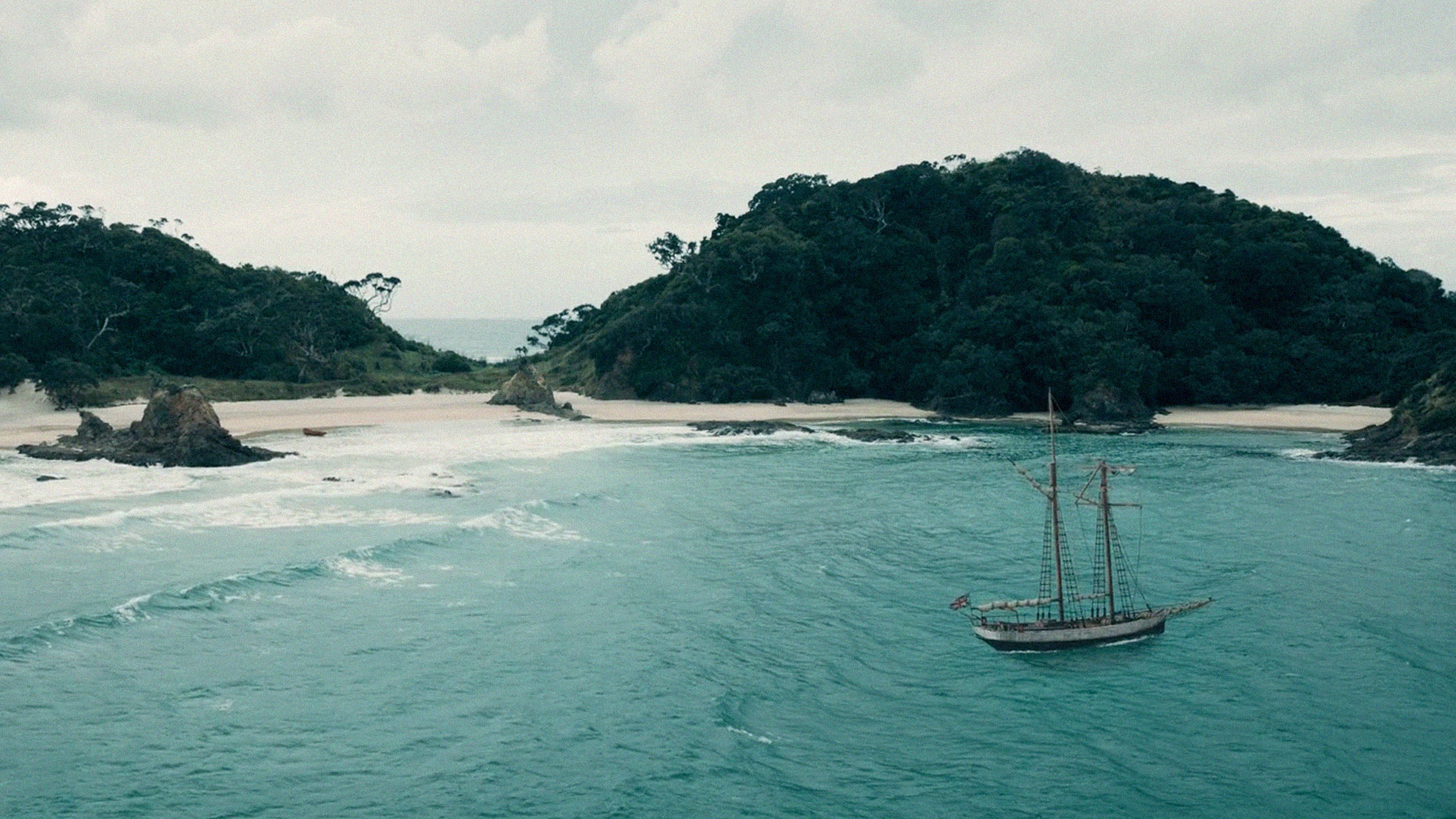
As Kedgley and his men prepare to return to their ship, Munro requests to camp on the land until they are ready to set sail tomorrow. Despite Kedgley’s advice against it, Munro insists on staying. Kedgley decides to leave Uenuku to accompany Munro, but Uenuku mysteriously disappears.
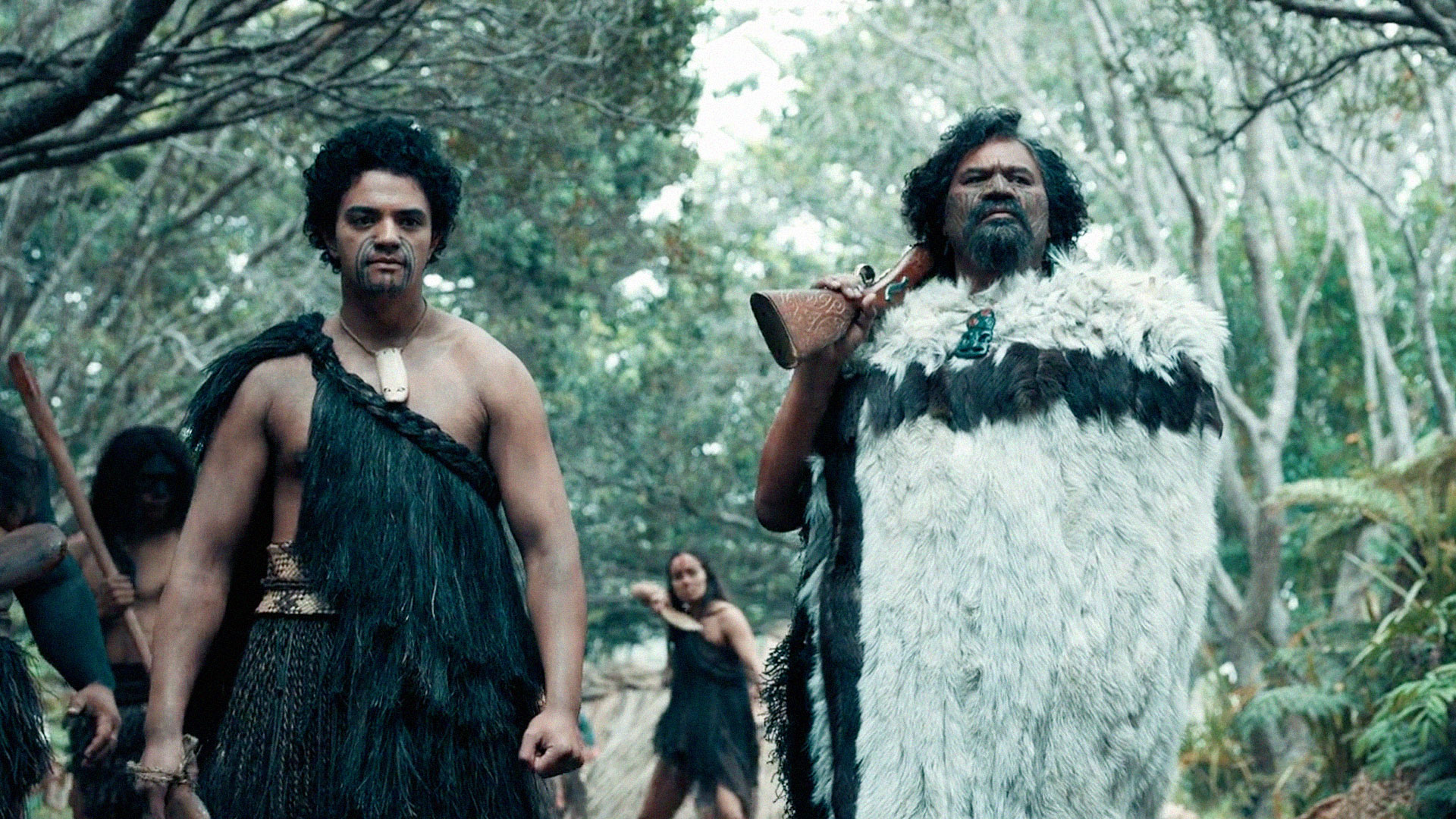
While Munro is napping, he is jolted awake by the sound of a woman screaming in the distance, followed by the sound of multiple gunshots. It appears that a nearby Māori village is being pillaged by another Māori tribe, Ngāti Ruapū, led by Te Akatārewa (Lawrence Makoare) and his son Uenuku. Munro intervenes and asks them to spare the lives of the last two survivors.
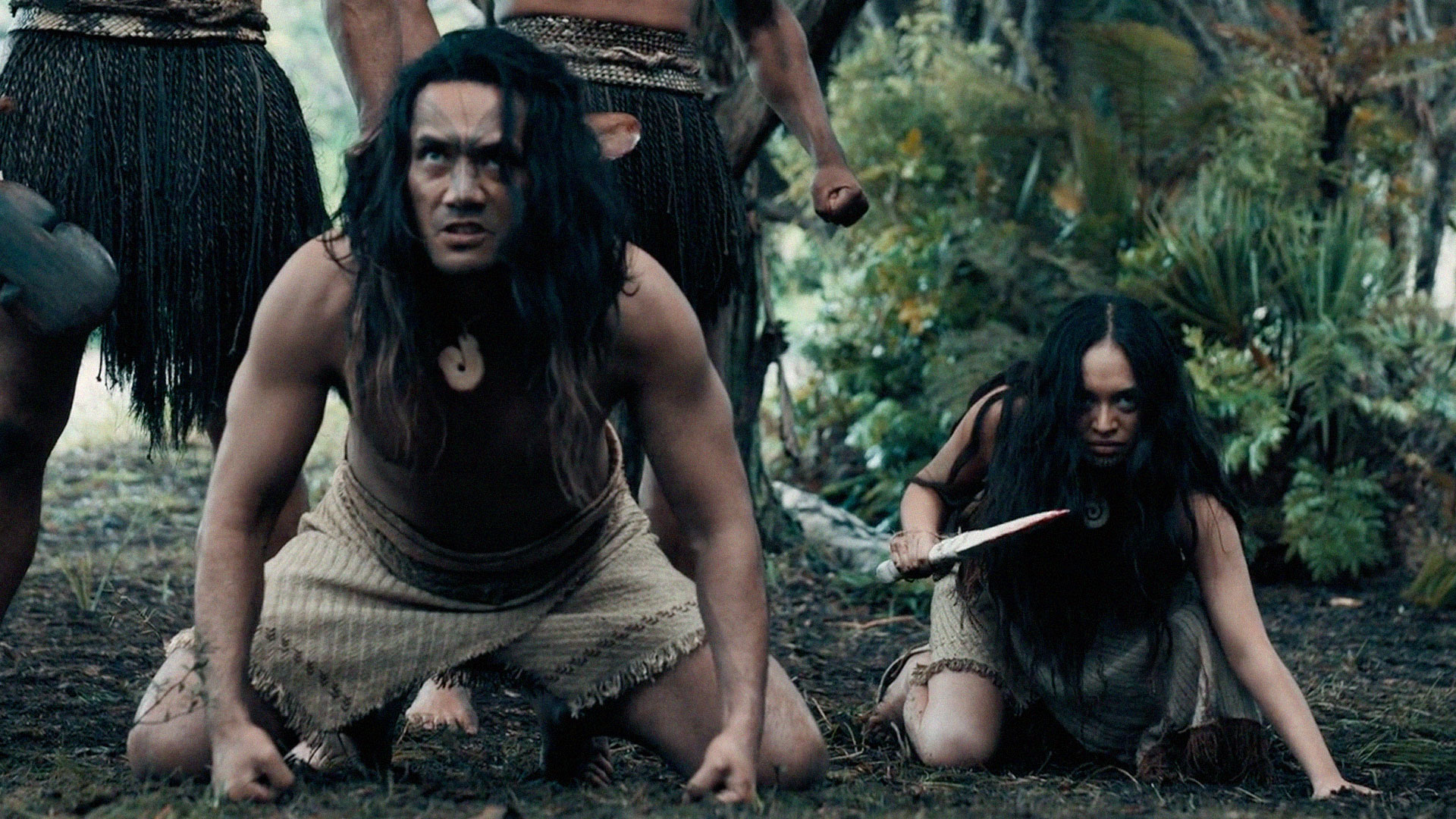
Akatārewa asks Munro what he is willing to trade for the lives of the two survivors, and Munro offers his horse. However, Akatārewa tells him that one horse can only save one person and insists that Munro must choose. When Munro hesitates to make a decision, Akatārewa signals his men to kill Rangimai’s husband. In response, Munro takes Rangimai under his wing.
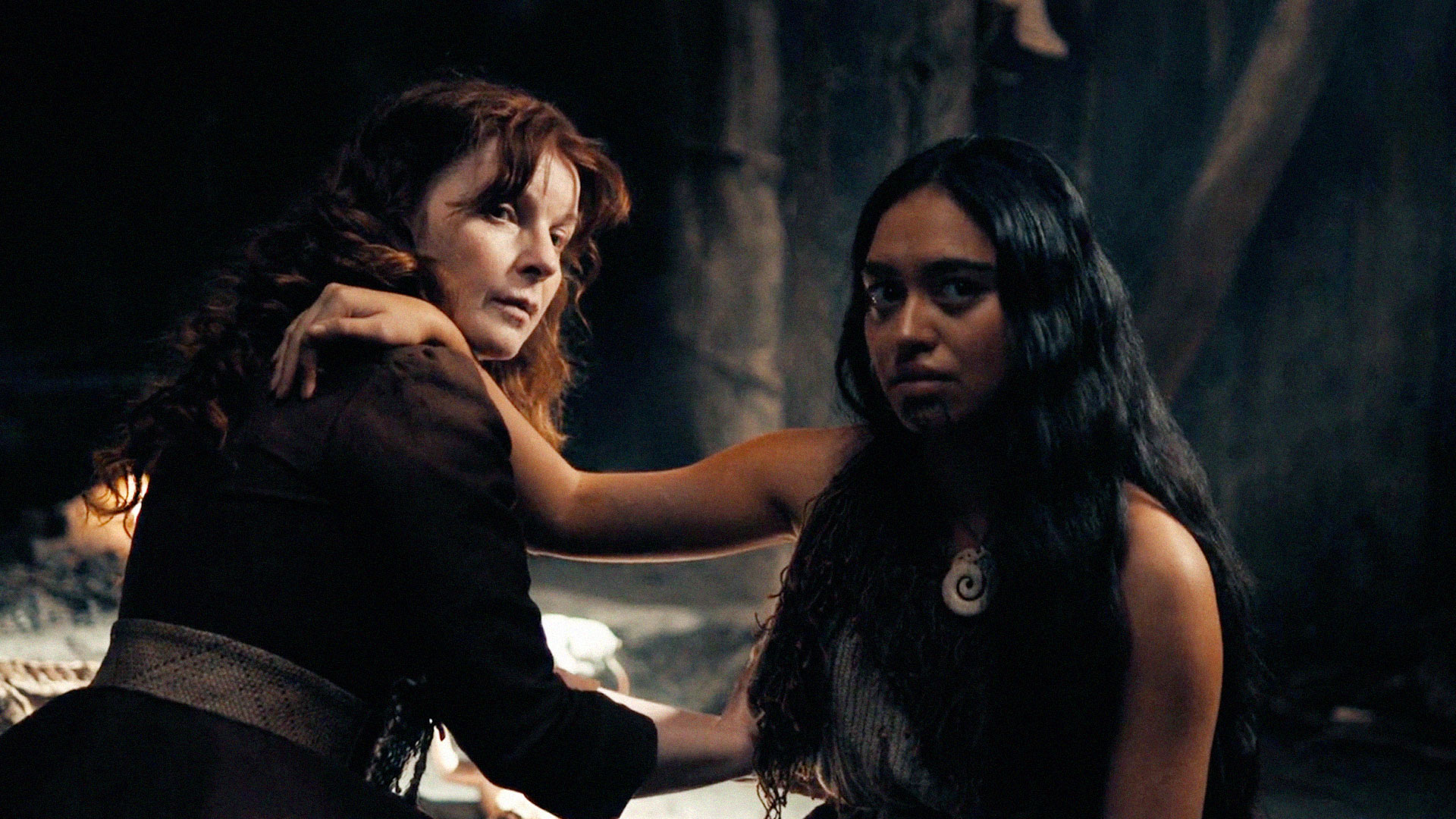
Munro and Rangimai arrive at a British settlement called “Epworth” and meet Horace Beauchamp (Mark Mitchinson), who is surprised to see Rangimai. Munro soon discovers that Rangimai has a wound from the battle and is becoming ill from the infection. He tries to seek help from a doctor, but quickly learns that the citizens of Epworth are unwilling to assist an outsider, as the doctor is contracted to care for the well-being of the local residents. After dinner, Horace’s daughter Bethany (Madeleine McCarthy) suggests that Munro go find Charlotte Hegarty (Jacqueline McKenzie), who might be able to help him.
Epworth was established as a Methodist mission station in 1892 by Rev. Isaac Shimmin, with the intention of spreading Christianity among the local Māori population. The mission aimed to bring education and religious teachings to the indigenous communities, reflecting the broader goals of missionary work during that era. The settlement of Epworth occurred during a period when New Zealand was experiencing significant changes due to British colonization. The early 1830s saw missionaries advocating for British intervention to curb violence among Māori tribes and to protect their rights. As British settlers began to arrive, tensions grew between the Māori and the colonizers. The New Zealand Company sought to purchase land from Māori chiefs, often leading to conflicts and dispossession of indigenous lands.
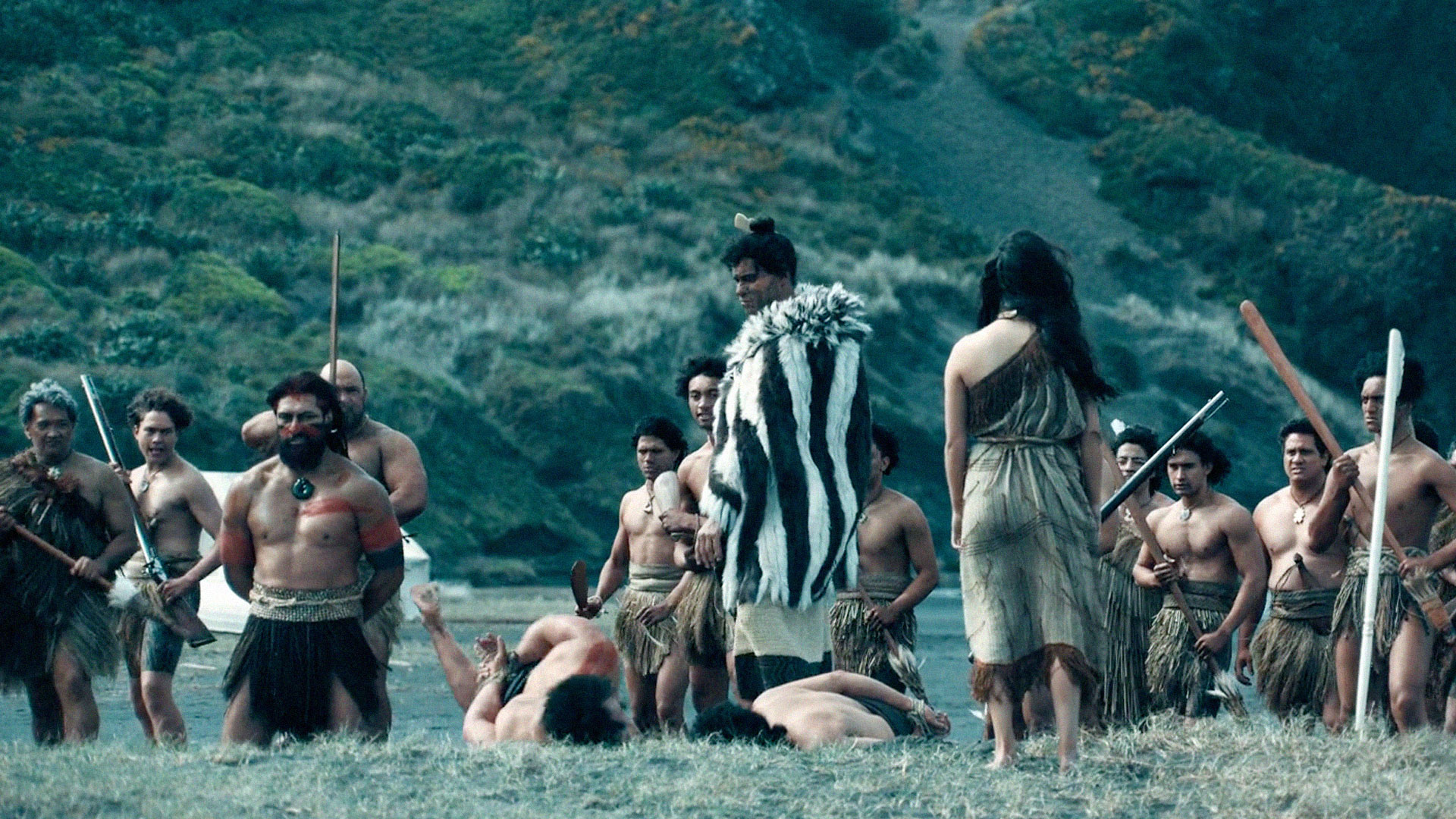
Rangimai’s father, Chief Maianui (Antonio Te Maioha), and his men arrive at Epworth, the town built on his land that he rented out to British settlers, bringing with them Akatārewa’s captured warriors. Maianui presents his daughter with three prisoners and asks her to identify which one killed her husband. Rangimai confirms that her husband’s killer isn’t among them, prompting Maianui to swiftly execute the prisoners one by one.
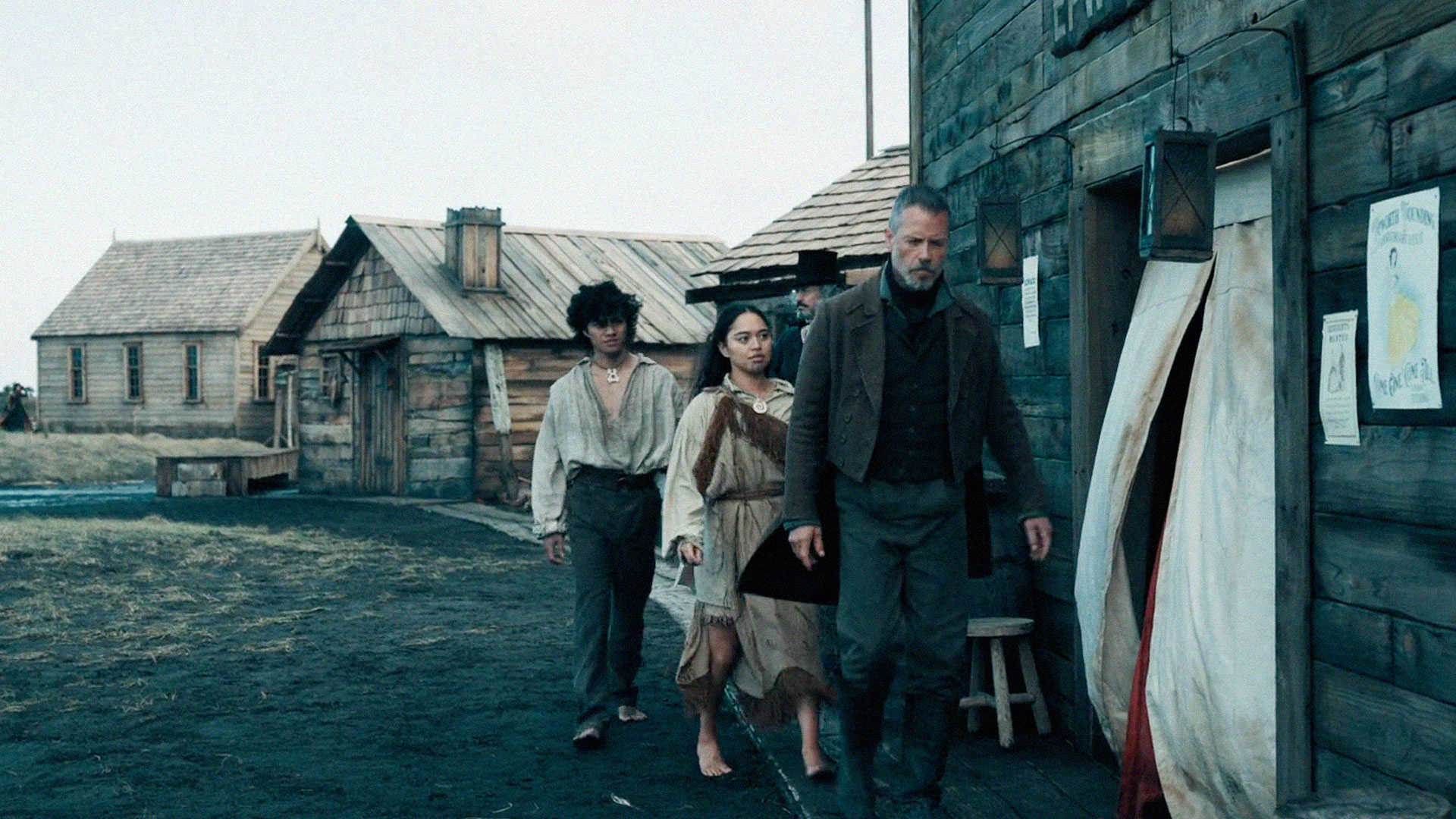
Charlotte informs Maianui about Munro, explaining that he is the holy man for the people of Epworth and the one who saved his daughter’s life. Maianui then orders Rangimai to stay and learn from Munro. Before departing, Maianui leaves one of his warriors, Pahirua (Duane Evans Jnr), to protect Rangimai and assist Munro.
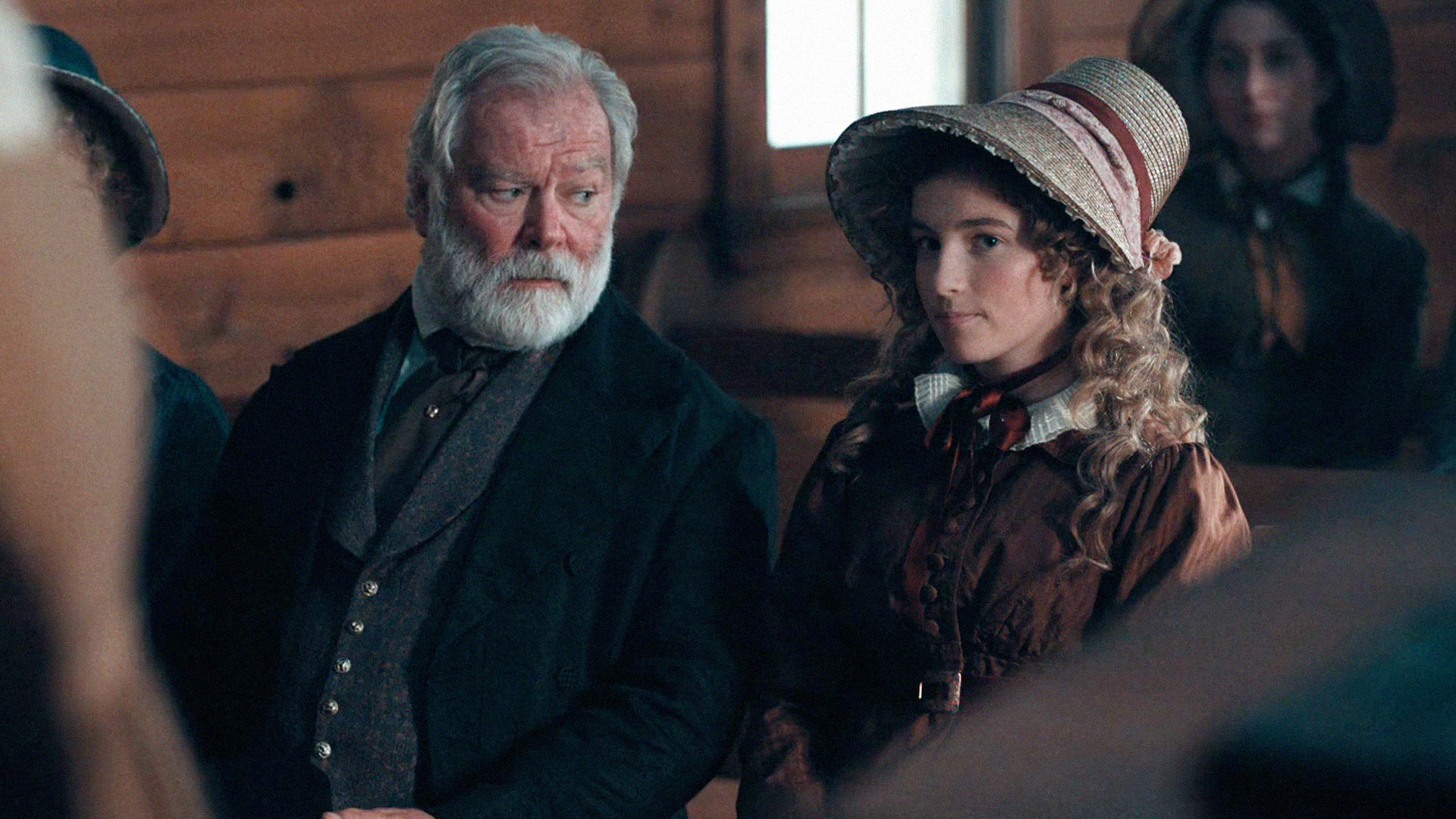
Charlotte teaches Rangimai how to dance. Meanwhile, Horace grows suspicious that his daughter Bethany might have feelings for a handsome young Māori warrior named Pahirua. Their feelings are mutual, as Bethany secretly meets him at the church after hours. While most of the citizens are attending Epworth’s Founding Anniversary Dance, Horace sends his men to kill Pahirua.

Munro is infuriated when he discovers that Pahirua has been murdered and that the leaders of Epworth are creating a scapegoat to protect the true culprit. He warns them that he won’t lie to Maianui when he returns Pahirua’s body to his people. Munro then leaves Epworth, heading to Maianui’s tribe with Rangimai and Charlotte, who insists that he needs her voice to communicate with the Māori people.
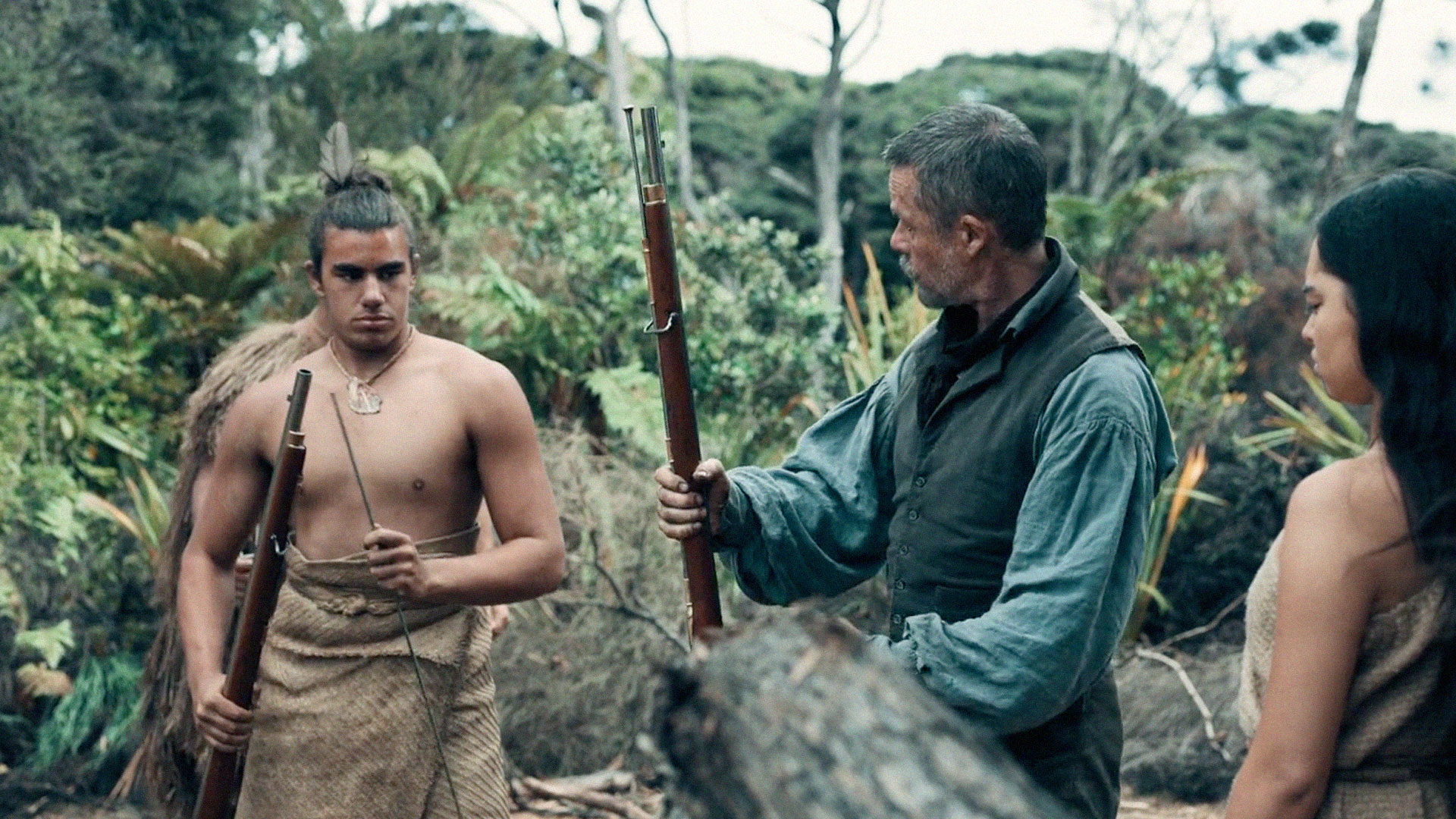
During his stay with the tribe, Munro teaches Maianui’s warriors a much faster way to reload the Brown Bess, the British land pattern musket. The film reveals Munro’s horrific past as a soldier, which led him to turn to God in search of redemption for his sins. Later, Munro encounters Kedgley and his men, who are trying to sell a crate of muskets to Maianui at an exaggeratedly steep price, claiming the cost is high due to demand.

The Brown Bess was a flintlock musket that served as the standard long gun of the British Empire’s land forces from 1722 until 1838. It was a muzzle-loading smoothbore musket with a.75 caliber bore and a socket for attaching a bayonet. The Brown Bess had several variants, including the Long Land Pattern, Short Land Pattern, India Pattern, and Sea Service Musket.
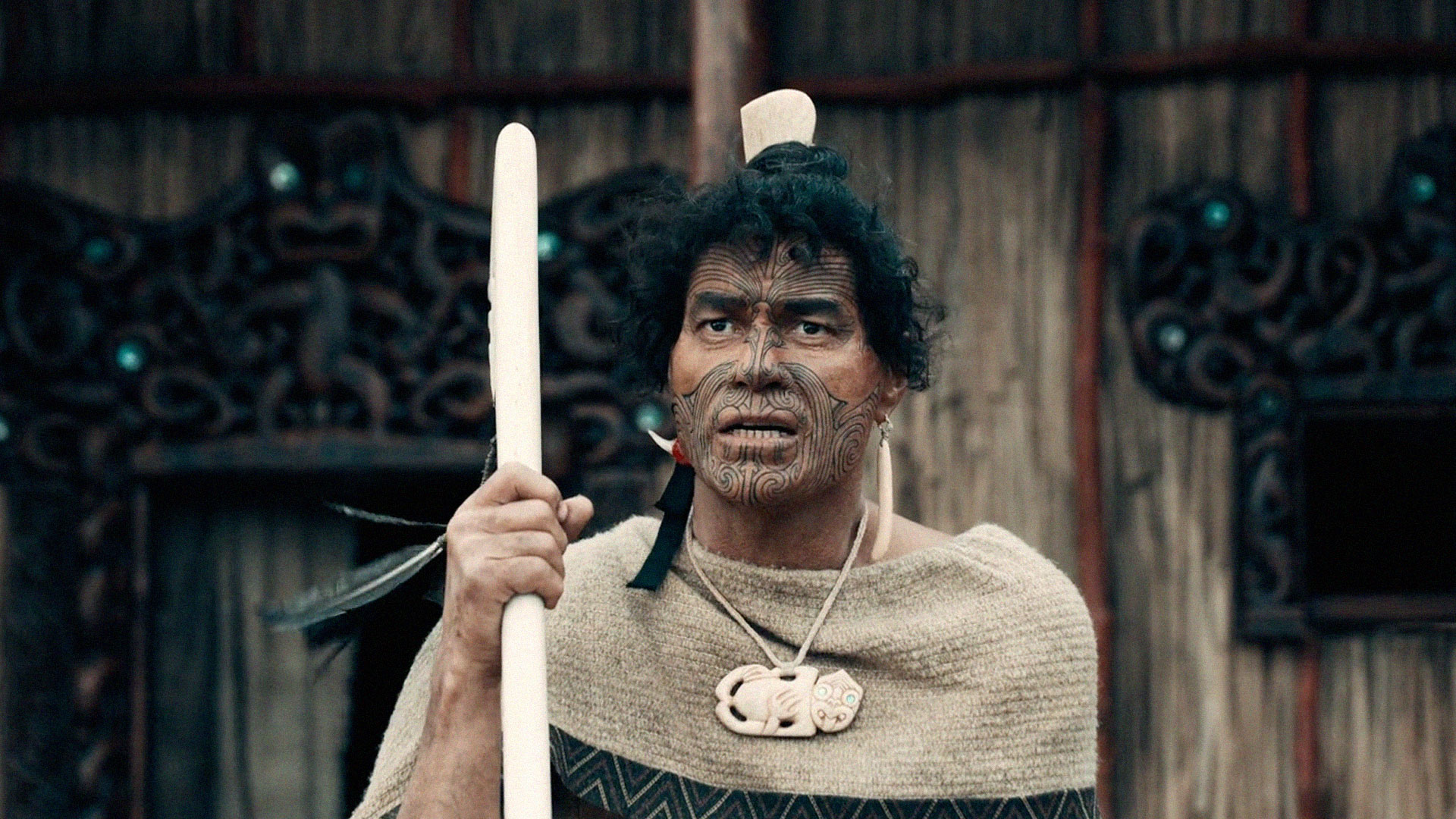
Munro tries to convince Maianui to choose peace over war against Akatārewa. Maianui agrees to let Munro go talk to Akatārewa on his behalf. If Munro can persuade Akatārewa to embrace the God of Peace, Maianui and his people will follow Munro’s God as well.
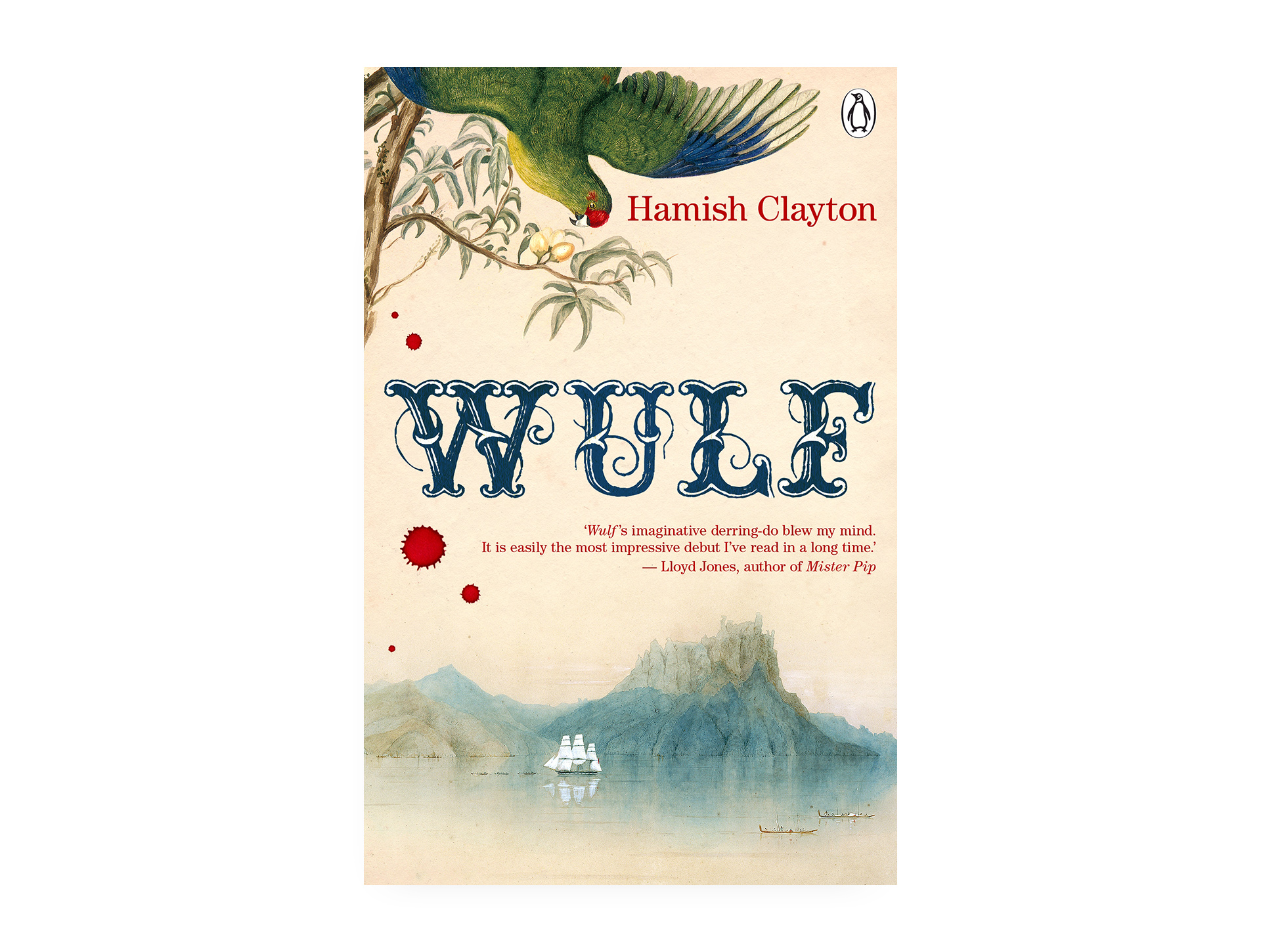
Directed by New Zealand filmmaker Lee Tamahori, from a screenplay he co-wrote with Shane Danielsen, based on Hamish Clayton’s 2011 novel ‘WULF,’ The CONVERT is a visually striking and narratively engaging historical drama that leaves quite an impression.
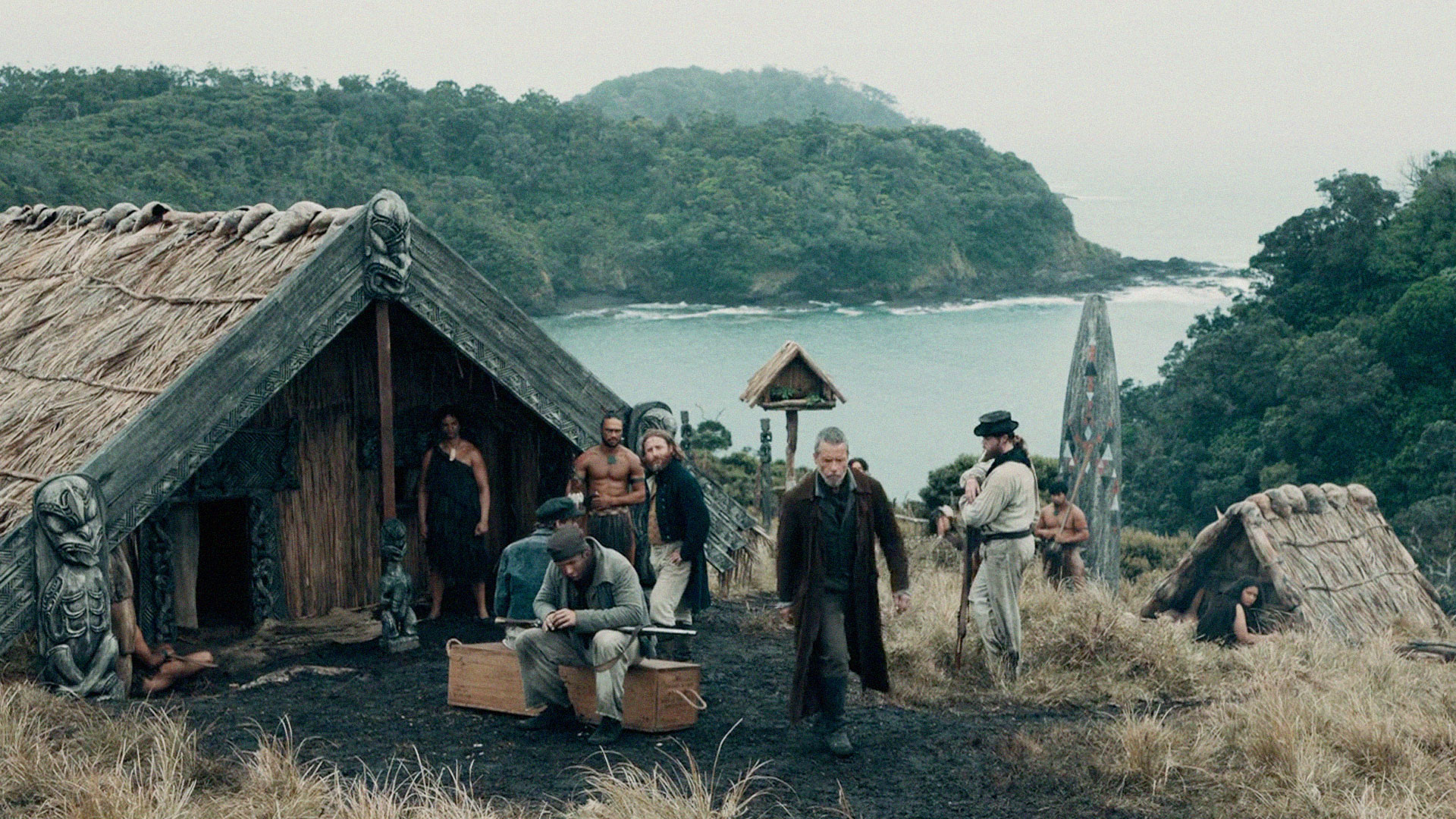
The cinematographer Gin Loane magnificently captures the rugged landscape of New Zealand’s remote coastal area. Combat scenes are captivating with an exciting mix of raw energy and realistic depiction.
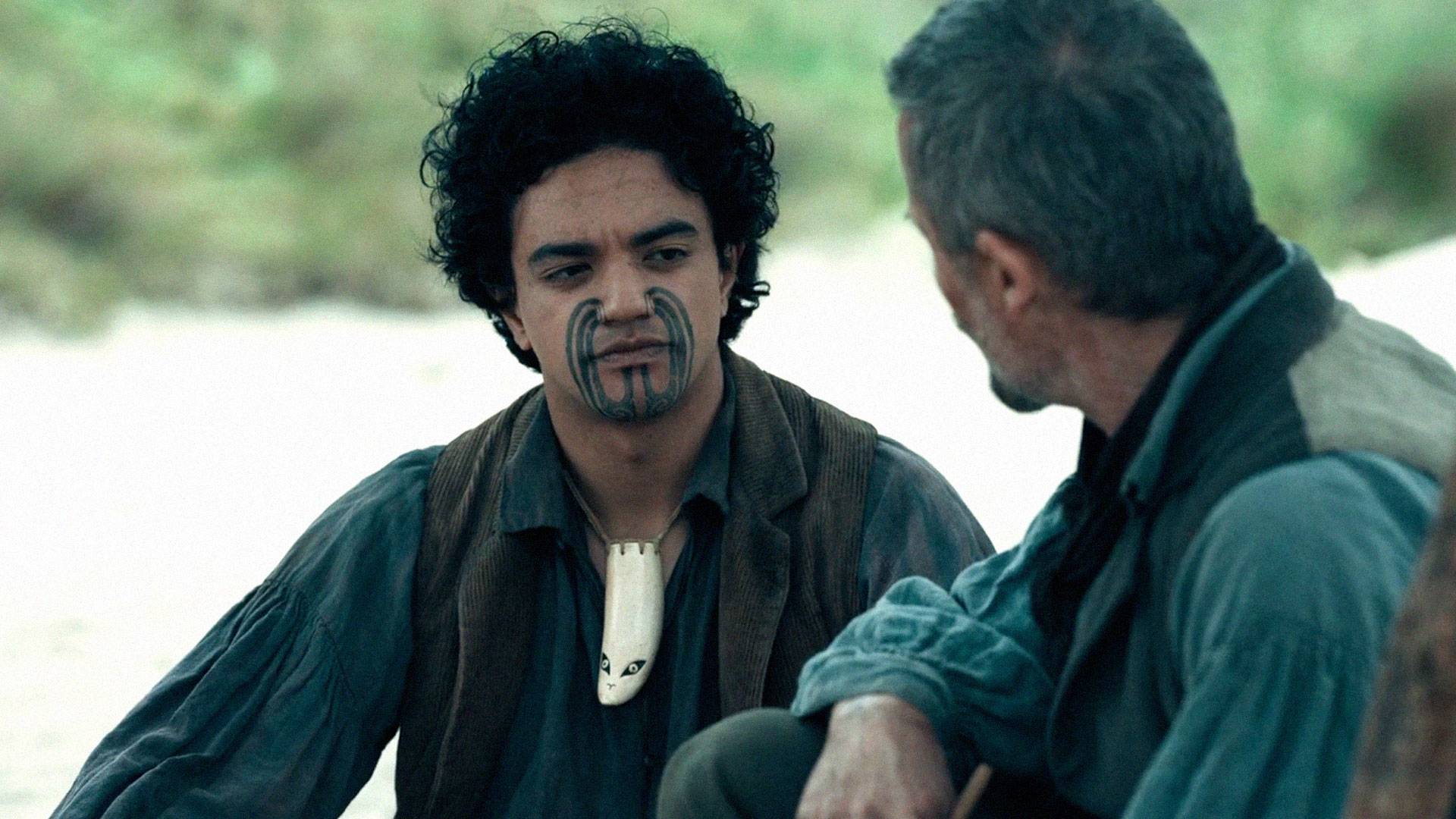
As much as the plot in this film twists and turns in unexpected ways, the leading cast brings a lot of depth and authenticity to their performances. They are well complemented by a talented ensemble cast who adds multiple layers of depth to the story, with characters of humanity that feels genuinely anchored to the historical setting of the film.
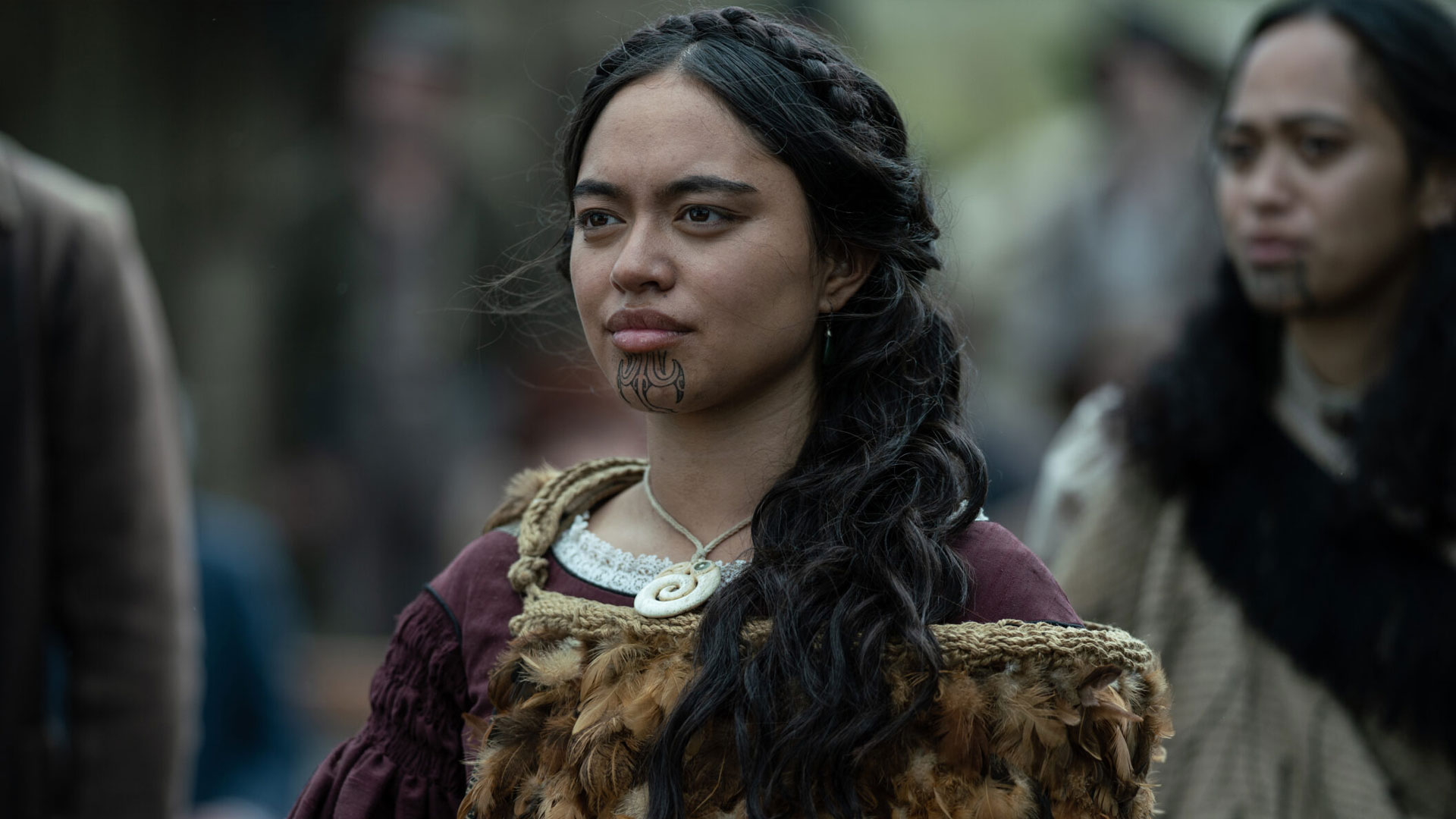
Tioreore Ngatai-Melbourne holds her own with a great performance as Rangimai, a tribal woman who does an interesting storyline on her part. Her performance projects the utter emotional range as her husband is lost to a ruthless, blood-seeking Māori chief. Ngatai-Melbourne skillfully puts Rangimai’s struggle into being an outsider among British sattlers, building tension and complexity in her character. It is heightened further to a resolution that is satisfying — that Rangimai rises to the occasion to take revenge for her husband.

Guy Pearce matches these with his portrayal of Thomas Munro, a former British Army soldier turned lay minister. It’s a performance from Pearce that ties in very well Munro’s redemption pursuit from his warmongering past he keeps hidden, restrained in his role compared to Rangimai’s. Pearce’s subtle acting perfectly complements the film.
I don’t know why I half expected that Munro would unite Māori tribes and destroy British settlement. It would be epic though.
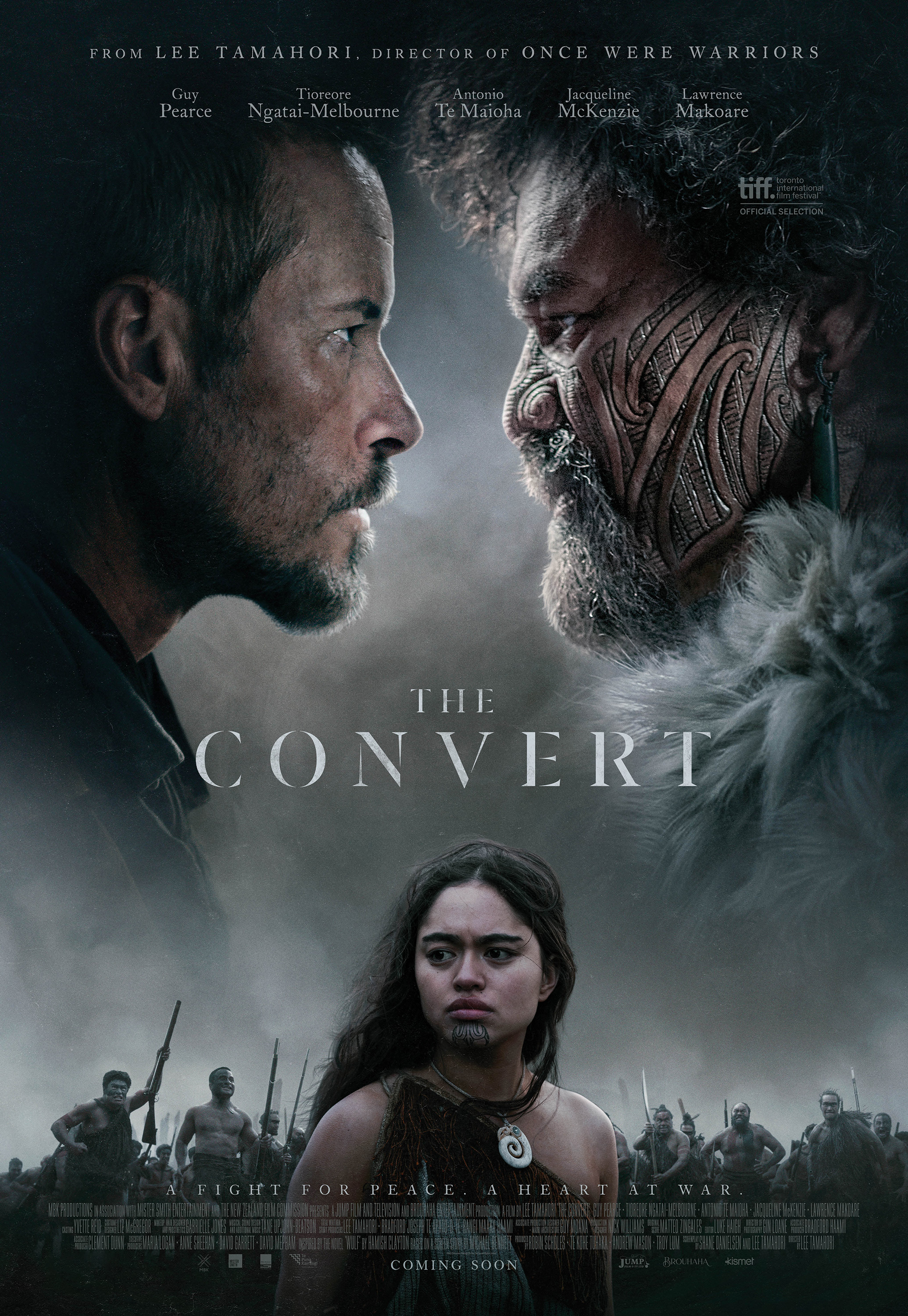
The CONVERT premiered at Toronto International Film Festival on 7 September 2023. It was theatrically released in New Zealand on 14 March 2024.





